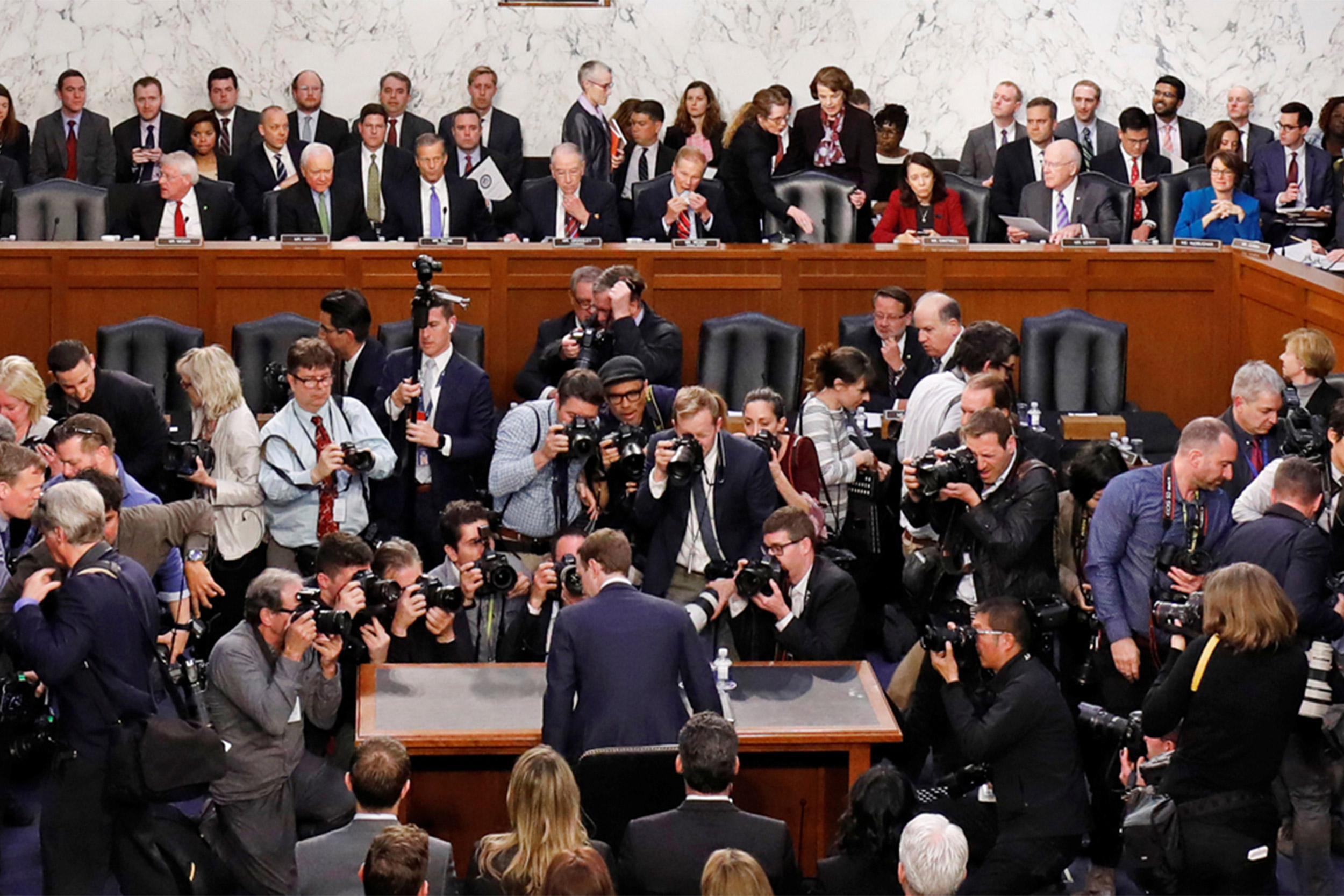
Harvard Kennedy School researchers published an examination of congressional tech expertise shortfall.
Reuters
New report urges Congress to close its growing tech gap
Harvard Kennedy School researchers craft materials on evolving areas, along with policy considerations
In recent months, cities and states have enacted a patchwork of rules and laws on data breaches, cryptocurrency, and facial recognition amid a lack of federal action in these rapidly evolving areas. The growing fragmentation of the tech-policy landscape injects urgency into the need for members of Congress to strengthen their understanding of the issues so they can craft timely legislation.
To that end, on Thursday researchers at Harvard Kennedy School’s Belfer Center for Science and International Affairs published a detailed examination of this congressional expertise shortfall. Drawing on more than 140 interviews with current and former members of Congress, their staff, lobbyists, civil-society groups, and think-tank experts, the researchers proposed various options to close the knowledge gap, such as hiring and developing more staffers with the necessary backgrounds and producing a more regular flow of accessible briefing material.
The report arrives as recognition grows that Congress has allowed its science and tech expertise to atrophy even as the challenges have become more complex. One of the recommendations is the creation of a new nonpartisan, legislative science-and-technology analysis body. A similar proposal is already being considered by a congressional committee, and will face a vote as soon as the end of the month.
The report, “Building a 21st Century Congress: Improving Congressional Science and Technology Expertise,” was drafted by a team in the Technology and Public Purpose (TAPP) Project, led by Belfer Center Director Ash Carter, the Belfer Professor of Technology and Global Affairs. Carter began his policy career in the 1980s as a young physicist on Capitol Hill working on nuclear issues, and as U.S. Defense Secretary he dealt often with Congress, seeing first-hand the worsening deficit in science and technology (S&T) expertise.
At a TAPP congressional workshop at the Kennedy School in August, Carter discussed with visiting Hill staffers possible options to help Congress get up to speed on emerging technologies and begin to consider policies to deal with the political, cultural, and financial issues that would result.
“We just kept hearing that Congress is the most advised body in the world, but unfortunately a lot of the resources they were getting weren’t incredibly useful.”
Laura Manley, TAPP project director
“Our government is going to be wrestling with technology change in public life for a very long time,” Carter said, “and it would be nice to have a tool kit.”
The TAPP team has already begun to craft some of those tools to fill gaps identified in the interviews. This summer, working with researchers at the Harvard John A. Paulson School of Engineering and Applied Sciences, the TAPP project published four fact sheets to provide brief overviews of genome editing, solar geoengineering, the Internet of Things, and machine learning, along with the relevant policy considerations.
Laura Manley, the TAPP project director, said the sheets are careful to avoid policy prescriptions. Rather, they provide concise explanations for lay readers of arcane tech worlds, and then summarize the policy options that might be pursued. She said experts from many institutions are contributing to these primers, with six more to be published this fall.
“We just kept hearing that Congress is the most advised body in the world, but unfortunately a lot of the resources they were getting weren’t incredibly useful, either because there was bias or they weren’t timely or they weren’t specific enough on the actual policy questions that you might ask,” Manley said.
Manley pointed to the heightened urgency for action, as foreign governments step into the vacuum left by U.S. inaction on tech policy. The European Union is setting standards on data privacy, and China is also stepping in on policy issues where the U.S. once led. At the same time, cities including Cambridge and Somerville, Mass., are banning facial-recognition software in the absence of federal standards.
The report assesses the institutional shortfalls that members of Congress and their staff face in weighing policy choices and asks why “in legislation and high-profile hearings, Congress has appeared unprepared to reckon with emerging technologies and their effects on society.”
The report finds that Congress “has simply not given itself the resources needed to efficiently and effectively absorb new information — particularly on complex S&T issues. Legislative support agencies and committees have been allowed to wither, reducing policy expertise on S&T issues and institutional knowledge about policymaking and how to be effective in Congress.”
The report’s suggested institutional changes include:
- Creating a legislative support body focused on S&T issues. The nonpartisan group would provide data-driven policy options rather than propose specific solutions.
- Hiring additional science and tech talent for legislative committees and members’ office staff and committees, including more short-term fellowships for scientists and technologists.
- Building pathways for undergraduates concentrating in S&T to learn about opportunities on Capitol Hill through internships and consider career paths in policy work.
- Encouraging external resource providers to produce more easily accessible and timely briefings in more useful formats. Input needs to be short, concise, and customized for the audience, focusing on legislators’ specific policy needs.
The study concludes with a warning that “Congress is falling behind,” and that confronting issues such as artificial intelligence and synthetic biology will require bolstering of in-house science and tech expertise. The report recognizes that critics will oppose changes and will argue that existing resources are adequate. “What exists now is not working; something new is needed.”






